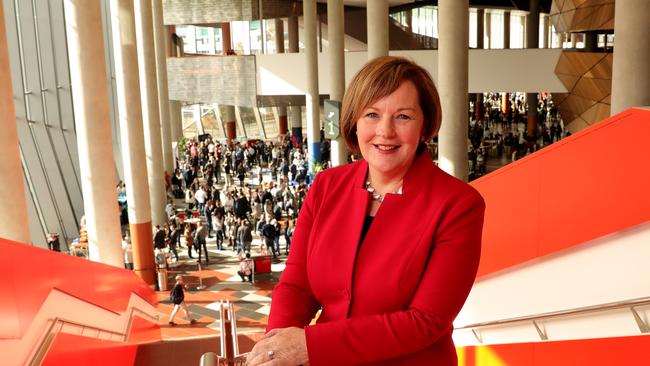Franking credits ‘off the agenda’ in retirement income review
Retirement income review panel member Deborah Ralston has effectively ruled out tackling franking credits.

Retirement income review panel member Deborah Ralston has effectively ruled out tackling franking credits in the first review of the nation’s retirement system in 30 years, arguing it is a taxation issue that should be dealt with in a separate inquiry.
Dr Ralston, who campaigned against Labor’s election pledge to scrap franking credits, also said the review panel would look at housing “one way or another”, despite Treasurer Josh Frydenberg already ruling out ever including the family home in the assets test for the age pension.
“Dividend imputation is really a tax issue about the broader economy: it’s about how we tax corporates. And it could well be that area of taxation comes under review at some stage but I don’t see how it fits into this particular review. We’ll have our hands full with the retirement system and the three pillars,” Dr Ralston told The Australian.
“This is a review about retirement income ... Yes, dividend imputation is a source of income but the source of that income comes out of corporate tax and we won’t be making recommendations on corporate tax.”
The fault in the ALP franking regime policy, she said, was it didn’t take a broad view of corporate tax; rather it tried to make savings through one small group of investors instead of looking at the broader system.
Mr Frydenberg on Friday announced the long-awaited review of the nation’s retirement income system, which was recommended by the Productivity Commission and will be led by former senior Treasury economist and International Monetary Fund executive Michael Callaghan. Alongside Mr Callaghan, Dr Ralston and Future Fund board member Carolyn Kay will round out the three-person panel, which has been tasked with establishing “a fact base” of the current system. The final report is to be delivered by June 2020. “It’s a very tight timeframe,” Dr Ralston said. “We’ll need to be targeted and conscientious about getting this done well and on time, so we’ll be off and running pretty quickly this week, I expect.
“What I like about the terms of reference is they take a very macroeconomic perspective on how the three pillars fit together and whether there are issues between them.”
Business Council of Australia chief executive Jennifer Westacott on Sunday welcomed the review, saying a look at the entire retirement income system was well overdue. “We have been concerned for a long time that you had to look at more than incremental changes to super,” Ms Westacott said. “You have to look at the whole retirement income system. You have to get this to work for a modern economy.”
Dr Ralston said the retirement system needed to be sustainable and not create a burden for younger generations.
“People really want to know that if they’re saving for retirement, that they’re appropriately incentivised to do that to be self-reliant where they can be or to be able to rely on the safety net where they can’t be self-sufficient.” The diversity of outcomes since the introduction of compulsory super would also be closely examined, while the issue of housing couldn’t be ignored, she said.
“We do see more people going into retirement who either don’t own their own home or still have a mortgage on their house, which is quite different to how it was a while back. It’s not that long ago that 85 per cent of people retired and owned their homes outright. But that’s changing and so that will have an impact on the retirement system.
“I know the Treasurer has been quite specific and (the government) does not intend to include the family home in the assets test. Our job is to put out a facts-based (report) on how the system is operating. So housing, one way or another, will come into it, particularly for those who are most at risk of poverty, particularly single older women who are non-home-owners.”
The share of retirees owning their own home is set to fall to just 57 per cent by 2056, according to the Grattan Institute.
Commenting on the Morrison government’s policy to lift the compulsory superannuation guarantee rate from 9.5 per cent to 12 per cent by 2025, Dr Ralston, who will step down from her role as chair of the Self-Managed Super Association for the duration of the review, said the panel would look at what was in the population’s best interests as people move towards retirement.
“This is an area where there’s a lot of conflicting opinion but the role of this particular review is to put down a fact base. And I think that will be our major contribution: sorting through all these different opinions and just try and get the facts right,” she said.
While the government has insisted it has “no plans” to halt the legislated increase in the super guarantee rate, a small cohort of Liberal backbench MPs are agitating for it to remain at 9.5 per cent or for it to be wound back for low-income workers.
Modelling by the Grattan Institute in July found that a 12 per cent super guarantee rate would see middle-income workers give up wages of up to 2.5 per cent while working in exchange for a boost of less than 1 per cent in their retirement incomes.



To join the conversation, please log in. Don't have an account? Register
Join the conversation, you are commenting as Logout